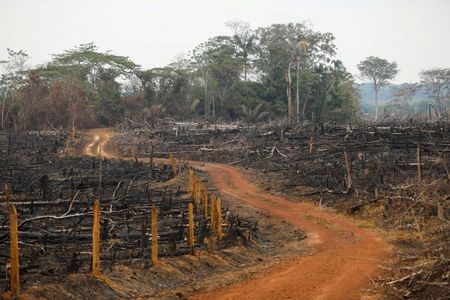European Commission proposes import ban to prevent deforestation

The European Commission has proposed a law aimed at curbing the import of commodities linked to deforestation.
This will require companies to prove their global supply chains are not contributing to the destruction of forests and will set mandatory due diligence rules for importers for items such as soy, beef, palm oil, wood, cocoa and coffee.
There are currently no EU-wide requirements for companies to have a due diligence process in place, and the proposed law comes after world leaders from countries including Brazil, China and Malaysia promised to end deforestation by 2030 as part of COP26.
“To succeed in the global fight against the climate and biodiversity crises we must take the responsibility to act at home as well as abroad,” EU climate policy chief Frans Timmermans said.
“Our deforestation regulation answers citizens’ calls to minimise the European contribution to deforestation,” he added.
The public consultation for the law gathered more than 1.2 million responses, the second most popular in EU history.
Under the proposed law, which needs to be approved by EU governments and the European parliament, companies will have to show the six commodities were produced in accordance with the laws of the producing country.
“The deforestation regulations we are putting on the table are the most ambitious legislative attempts to tackle these issues worldwide ever,” said EU environment commissioner Virginijus Sinkevičius.
The six commodities were selected based on an EU impact assessment. However, the Commission proposes the law be review and updated regularly, allowing new commodities and products to be added.
“The EU draft anti-deforestation law represents a major leap forward in the fight to protect the world’s endangered forests,” Nico Muzi, Europe Director of Mighty Earth told Reuters.
Brussels will also propose anti-waste rules to prevent EU countries from exporting waste to poorer countries unless they have given their explicit consent and guarantees that they can process the material.